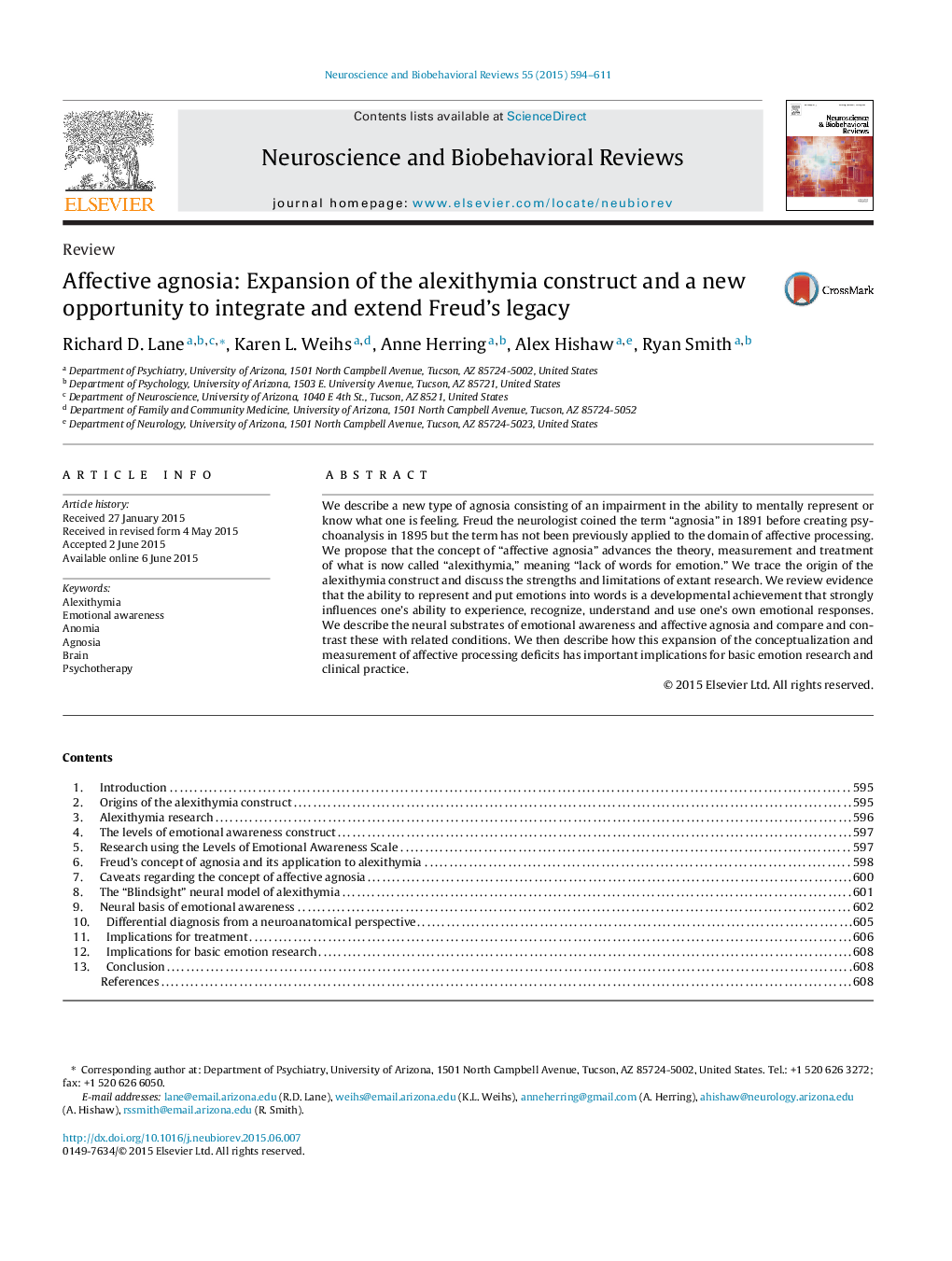| Article ID | Journal | Published Year | Pages | File Type |
|---|---|---|---|---|
| 7303574 | Neuroscience & Biobehavioral Reviews | 2015 | 18 Pages |
Abstract
We describe a new type of agnosia consisting of an impairment in the ability to mentally represent or know what one is feeling. Freud the neurologist coined the term “agnosia” in 1891 before creating psychoanalysis in 1895 but the term has not been previously applied to the domain of affective processing. We propose that the concept of “affective agnosia” advances the theory, measurement and treatment of what is now called “alexithymia,” meaning “lack of words for emotion.” We trace the origin of the alexithymia construct and discuss the strengths and limitations of extant research. We review evidence that the ability to represent and put emotions into words is a developmental achievement that strongly influences one's ability to experience, recognize, understand and use one's own emotional responses. We describe the neural substrates of emotional awareness and affective agnosia and compare and contrast these with related conditions. We then describe how this expansion of the conceptualization and measurement of affective processing deficits has important implications for basic emotion research and clinical practice.
Related Topics
Life Sciences
Neuroscience
Behavioral Neuroscience
Authors
Richard D. Lane, Karen L. Weihs, Anne Herring, Alex Hishaw, Ryan Smith,
